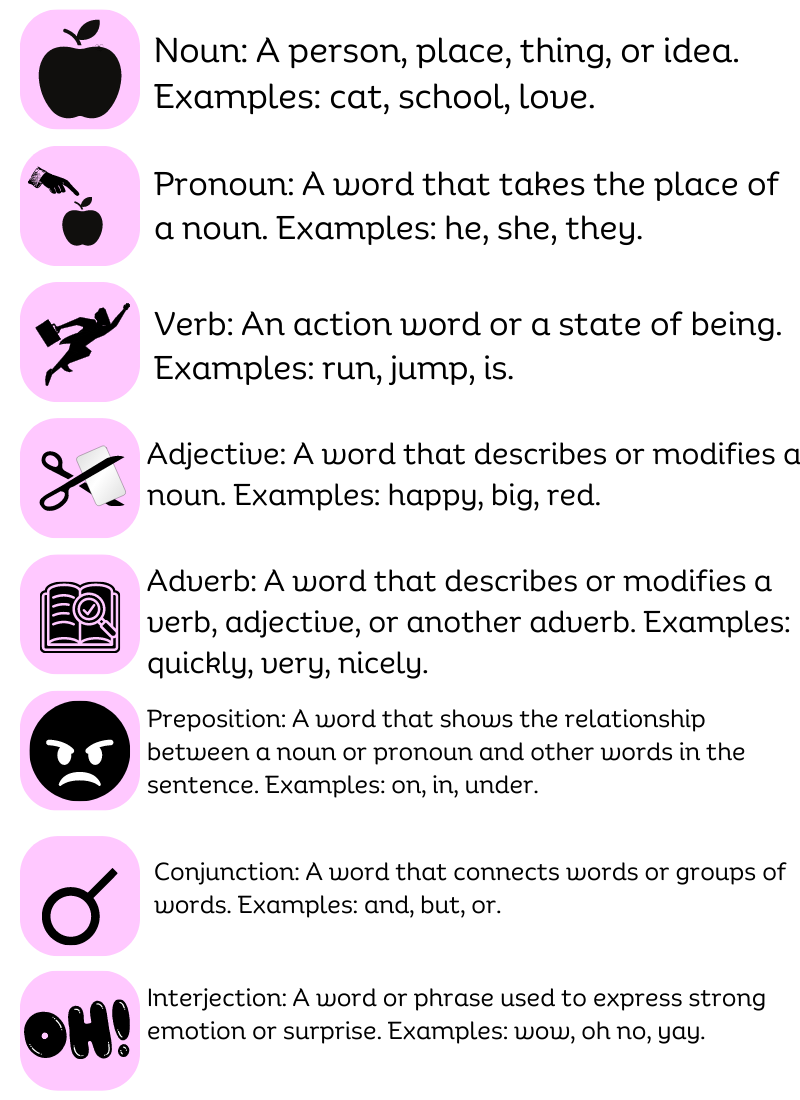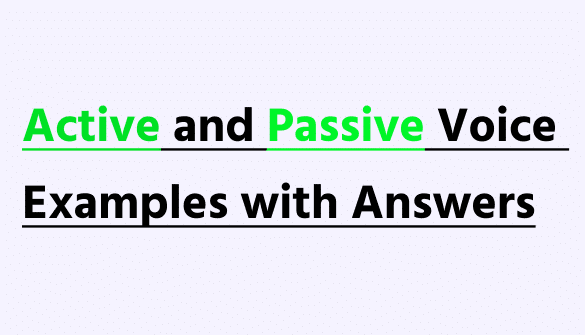Definition of Verb
A verb is a word used for saying something about some person or thing. or A verb is a word that states something about a person or a thing.
Ex- Prity laughs, The dog is dead, The boys are eating food, Aviraj goes to school
(Verbs: laughs, is, are, goes)
Kinds of verbs
Verbs are especially two types :
1.Transitive verb: A verb which requires an object after it to complete its sense is called a transitive verb.
Ex- The man killed a snake.
The boy opened the window
Aditi made a doll.
(From the above examples you may have understood that after the verbs object have been used which makes a complete sense)
2.Intransitive verb: A verb which does not require an object to complete it sense, but makes good sense by itself is called an intransitive verb.
Ex: The man died.
The sun shines.
The girl smiled.
(From the above all examples are showing good sense by itself without using an object)
Main verb:
The main verb has major meanings in the sentences i.e go, sell, complete, do, buy etc.
Helping verbs:
A helping verb(also known as an auxiliary verb) is used with a main verb to help express the main verbs, tense, mood or voice.
| Sentence | Main verb | Helping verb |
| He is going | going | Is |
| I am running | running | Am |
| They are playing football | playing | Are |
| You will qualify for the exam | qualify | Will |
| She has gone from here | gone | Has |
Forms of the verb:
There are especially five forms of the verb:
- V1: First (present) form of verb {go, eat, write, work}
- V2: Second (past) form of verb {went, ate, wrote, worked}
- V3: Third (past participle) of verb {gone, eaten, written, worked}
- V4: Fourth (ing) form of verb {going, eating, writing, working}
- V5: Fifth (singular) form of verb {goes, eats, writes, works}
| Meaning | V1 | V2 | V3 | V4 | V5 |
| Eat | eat | ate | eaten | eating | eats |
| Fall | fall | fell | fallen | falling | falls |
| Find | find | found | found | finding | finds |
| Fly | fly | flew | flown | flying | flies |
| Give | give | gave | given | giving | gives |
| Go | go | went | gone | going | goes |
| Grow | grow | grew | grown | growing | grows |
| Keep | keep | kept | kept | keeping | keeps |
| Know | know | knew | known | knowing | knows |
| Draw | draw | drew | drawn | drawing | draws |
Regular verbs- Irregular verbs
The forming base form of the verb to simple past(2nd form) and past participle(3rd form) verb is divided into two categories.
- Regular verbs: The verbs which form their simple past and the past participle by just adding “-ed” to their base form are called a regular verb.
Ex-Work – worked, Allow – allowed, Play – played, Stay – stayed.
- Irregular verbs: The verbs which form their simple past and past participle in different ways.
Ex- Fly – flown, Grow – grown, Steal – stole, Sleep – slept, Keep – kept
Verbs are classified into two classes :
Lexical verbs: The verbs which are used in a sentence as the main verb as V1, V2, V3, V4 (ing), V5 (singular) as well as it’s meaning is independent is known as lexical verbs.
Ex- to go, to drink, to laugh etc.
Auxiliary verbs: Those verbs which are used with main verbs and make a question, negative, and tense as well as the express possibility, willingness. It is also called helping verbs.
Primary auxiliary verbs: to be- (is, am, are, was/were), to have- (has, have, had), to do- (do, does, did).
Modal auxiliary verbs:
- Can, could (ability)
- May, might (possibility)
- Will, shall, would (intention)
- Should (necessity)
- Must (necessity- a bit compulsion)
- Ought to(should – moral duty)
| Person | Subject | Helping verbs of the present tense | Helping verbs of past tense |
| 1st person | I | am, have | Was, had |
| 2nd person | You | are/have | Were, had |
| 3rd person(singular) | he/she/it/ram | is/has | Was, had |
| 3rd person(plural) | we/they/boys | are/have | Were, had |
Sentence forming rules:
Rule – helping verbs- is/ am/ are/ was/ were/has/have/had/will/shall
| Type of sentence | Rule |
| Positive | Subject + helping verb + object . |
| Negative | Subject + helping verb + not + object. |
| Interrogative | Helping verb + subject + object ? |
| Interrogative negative | Helping verb + subject + not + object ? |
Examples:
| He is going to college. |
| She is not working at the right time. |
| Is Hindi is an easy language? |
| Is Hindi is not an easy language? |
Do you want to speak like as native Speaker?
> > > Click Here < < <
Read Also:


